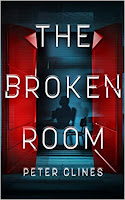It’s November! It’s been November for a week now! We all know what that means, right?!?
Well, it’s meaning a lot of different things than we all probably hoped it would. And I totally get it if that means you don’t want to think about writing today. Or tomorrow. Or until sometime in early 2029 or so.
But for the rest of you… let’s talk about National Novel Writing Month. Why some of you probably aren’t doing it this year. And why maybe you should just write anyway.
And I’m going to try to make it quick and semi-inspiring.

If you hadn’t heard, NaNoWriMo decided to shoot themselves in the foot a few months back and then decided to get both knees, too, because they had a few rounds left. They took on a generative AI company as a sponsor and then—loudly–announced they’d decided it was cool if you wanted to count AI-generated churn as your NaNoWriMo project. Not surprisingly, many folks were offended by this since the whole point of National Novel Writing Month was… well, writing. I mean, it’s right there in the title. There was backlash, commentary, discourse, and a lot less interest in joining NaNoWriMo. Go figure.
This is, understandably, depressing for a lot of of people. NaNoWriMo was an already-in-place writing infrastructure. It provided a solid, clear goal and a community where folks could share progress and encouragement and tips.
It also gave a sense of accomplishment and learning. As I’ve said many times in the past, the whole point of NaNoWriMo is just to make progress on a first draft. Maybe I make a ton of progress and get 60K words done. Maybe more. Maybe I only get ten or fifteen. The goal here is to make a serious effort to write every day, or at least as often as I can, so I can get an honest sense of how much I can write.
Because there’s always reasons not to write. Day jobs. Commutes to day jobs. Spending more time with our loved ones. Dealing with annoying problems and issues that crop up in our lives (I think I need to get my roof redone!!!). Having massive dread about the future. Just needing to get one decent night of sleep. Just one!
So NaNoWriMo was a great excuse to try to focus past all of that. It was a reason to tell friends and family “hey, not this week, sorry.” It was a chance for us to really focus on this whole writing thing.
But… do you really need some website for that?
You can set your own goal for this month. For any month. You don’t need NaNoWriMo for that. You can just tell your friends, “hey, I just really need to make some headway on this book right now.” I did that for years. And there’s so many folks out there offering advice and tips. Heck… you’re reading this on a blog with over fifteen years worth of them.
Look, if you want… I know I go back and forth about my posting schedule here, but if some of you want it, I’ll give you an encouraging post every week this month. Even Thanksgiving week. A little nudge (or maybe a good shove) to keep going, to keep doing it, because you can do this. You can have a contest of one and still come out of November in the same place you would’ve been with NaNoWriMo.
Heck, I’ll tell you what. For the month of November, this can be your writing community space. Post any achievements, frustrations, questions here and I promise you I’ll respond with a high five, a commiseration, an answer, or some kind of encouragement to keep writing. I’ll check in every day. Maybe more often if I’m trying to avoid work. And you can respond to each other, too.
Y’see, Timmy, it sucks that NaNoWriMo made some awful choices. But don’ t add that to the list of reasons you’re not going to get any writing done. You’ve still got everything you need to do this. You just need to, y’know… do it.
Next time—well that’s up to you. More encouragement? Or should I just do a usual post in two weeks about drafts or something like that? Let me know.
And until then… go write!







